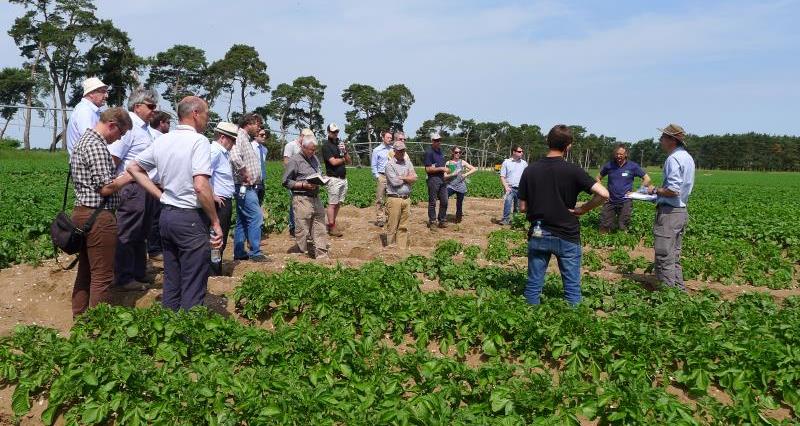Water is a key resource for all farmers and growers and contributes significantly to production of high quality fruit and vegetables.
A prolonged period of low rainfall can severely affect agriculture through crop failure, reduced crop yield, deteriorating quality, disrupted access to drinking water for livestock and increased fire risk (particularly in upland and heath areas).
Paul Hammett, NFU water resources specialist says that the Water for Food group of organisations (which includes the NFU) has worked hard since the last dry weather spell in 2010-12 to signpost information on best practice in water use.
“Farmers can and do act early to improve their prospects of coping with prolonged dry periods by using water-saving devices like effective use of irrigation equipment, science-based soil and water management, and irrigation best practice”, said Paul.
Top tips offered by ADAS for optimising crop performance and efficient use of the available water include:
• Knowing the water holding capacity of the soil in each field and the water requirements and response of each crop grown
• Using effective soil moisture monitoring systems and using them to schedule irrigation accurately
• Choosing the right application equipment for each situation and knowing how to get the best out of it in terms of uniform and timely delivery
• Managing water application for maximum economic benefit with minimum impact on the environment
• Auditing performance afterwards to seek ways of improving the efficient use and application of water
The following Water for Food group organisations also offer useful and relevant advice to farmers and growers:
Agricultural and Horticultural Development Board (AHDB)
UK Irrigation Association (UKIA)
